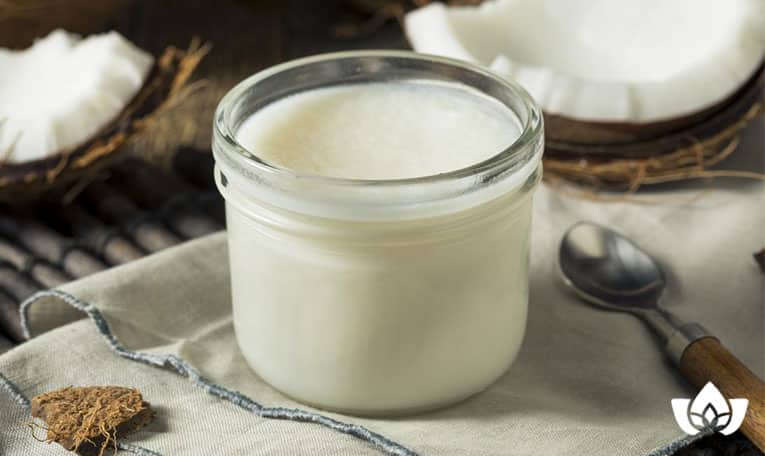
There are a lot of stereotypes which go along with someone having too much testosterone.
The short-tempered, muscular “gym bro” who is only concerned about how much he can lift comes to mind.
In reality, hormonal imbalances, including too much (or too little) testosterone, can lead to health issues in anybody.
Keep reading as we explore the role of this hormone in the body, and the effects which occur when it is not in balance.
First Off, Everyone Has Both
Although testosterone is typically associated with masculinizing effects such as larger muscles, and estrogen is associated with feminizing effects such as breast development, everyone requires both of these hormones.
Generally speaking, women produce just five to ten percent of the amount of testosterone as produced by men.
What Is Testosterone?
Testosterone is a sex hormone, which is produced in the testes in men, and in the ovaries, adrenal glands, and fat and skin cells in women.
It plays roles in bodily maintenance, growth, and reproduction.
Testosterone In Men
Testosterone plays a number of roles in men’s bodies.
It is generally thought of as being the main hormone which affects men’s sex drives, and also has an important part to play in semen production.
Additionally, testosterone affects the way fat is stored in the body, impacts muscle and bone mass, and plays a role in red blood cell production.
Finally, testosterone levels can impact mood.
Low Testosterone in Men
Symptoms of low testosterone levels can include the following:
- Lowered bone density
- Depression
- Increased weight
- Low sex drive
- Erectile dysfunction
- Less energy
- Mood swings
- Less body hair
- Negative impact on self-image
Testosterone levels decrease naturally with age, however, there are other reasons for these levels to drop, including some chronic health conditions, or an injury to the testicles.
Conditions which can impact testosterone levels include:
- Cancer (specifically treatments for cancer such as radiation or chemotherapy)
- Cirrhosis of the liver
- Alcoholism
- AIDS
- Kidney disease
High Testosterone In Men
Higher than average levels of testosterone in men have fewer symptoms than when levels are low.
In children, higher levels mean that boys may begin going through puberty earlier than their peers.
Possible reasons for extremely high levels of testosterone include cancer of the testes or a disorder of the adrenal gland.

Testosterone In Women
In women, testosterone is produced in fat and skin cells, adrenal glands, and ovaries.
It plays a number of vital roles in women’s health, including contributing to:
- Vaginal health
- Bone health
- Menstrual health
- Sex drive
- Fertility
- Breast health
Testosterone in women is converted by the body into female sex hormones such as estrogen.
This is what prevents them from developing male secondary sex characteristics such as facial hair and deepened voices.
Low Testosterone Levels In Women
Levels of testosterone in women naturally decline during menopause.
The main side-effect of this is reduced libido.
Testosterone replacement therapy can help to improve sexual function, however, it’s not recommended for women who have breast or uterine cancer.
High Testosterone In Women
When women’s testosterone levels are too high, the body can’t convert it to estrogen quickly enough.
Some of the more serious side effects of high testosterone in women include polycystic ovary syndrome (PCOS), and infertility.
It can also result in the development of male secondary sex characteristics such as frontal balding, deepening of the voice, acne, and facial hair.
Naturopathic Solutions For Hormonal Imbalance
If you’re experiencing symptoms related to high or low testosterone levels, it’s important to get tested to determine if a hormone imbalance is actually the cause of your symptoms.
Once you know if you have an imbalance you’ll want to try to determine the cause of the abnormal levels.
Some natural ways to help balance your hormone imbalances include:
- Eating more healthy fats, such as coconut oil, grass-fed butter, and avocados
- Using adaptogens, which include ashwagandha, or holy basil
- Addressing stress and emotional issues
- Eliminating toxins by avoiding products with harmful chemicals
- Being sure to get enough sleep
These are some general tips, however, a naturopathic doctor can help you to address specific issues.
Book An Appointment With Dr. Maria
Are you experiencing symptoms of a hormone imbalance?
If you’re male and having mood swings, weight fluctuations, or decreased sex drive.
Or female and have started growing facial hair or losing your hair.
If you’re looking for naturopathic treatments in Mississauga, I’m here to help.
I’ll work with you to determine the cause of your imbalances and offer naturopathic solutions designed to help get your body back into equilibrium.
Book an appointment with me, Dr. Maria, today, and let’s get to the bottom of your health concerns.
Until next time,
Dr. Maria Cavallazzi, N.D
Mindful Healing Naturopathic Clinic
Mississauga, ON L5M 1L7
(905) 819-8200
► https://g.page/MindfulClinicNaturopathic
Dr. Maria Cavallazzi is a medical doctor from Colombia where she practiced as a family physician for 8 years until she moved to Canada 16 years ago and became a naturopathic doctor in Mississauga.


